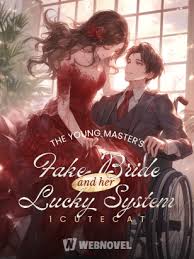The Story in 3 Sentences
A grieving widow, bound by duty and unfathomable circumstances, enters a marriage of convenience with her much younger brother-in-law, viewing it as a temporary shield for those she protects.
Her carefully constructed world of cherished memories and emotional isolation shatters as the boy she once mothered transforms into a fiercely possessive man, declaring a love she believes is impossible.
Forced to confront a heart she thought forever closed, she must navigate a second, tumultuous love story that challenges her past, her grief, and the very definition of moving forward.
Why It Stands Out
1. The Ghost Who Haunts Every Page
Lu Qiang’s presence is a masterclass in emotional storytelling; though his physical arc ends early, his love, kindness, and the profound void he leaves behind permeate every subsequent chapter, making his character as vital to the second act as he was to the first. Fans universally agree his impact lingers, wishing for even fantastical returns because his absence is felt so deeply .
2. From Boy to Beast: A Possessive Evolution
The transformation of Lu Lijun is the novel’s magnetic core. Readers are captivated by his journey from a dependent child into a formidable, almost dangerously obsessive man whose declaration, “Nobody is allowed to touch my wife,” signals a seismic shift in power and desire . His evolution from accepting Jiang Yuyan to depending on her and finally loving her is noted as exceptionally smooth and compelling .
3. Love’s Second Act, Not Second Best
The novel boldly splits its narrative into two distinct, fully realized love stories for the same heroine, a structure that feels fresh and ambitious. It doesn’t rush to replace the first love but allows it to breathe, ache, and conclude, making the hesitant, often painful bloom of the second romance with Lu Lijun feel earned and uniquely powerful, not a consolation prize .
Characters That Leave a Mark
There’s Lu Qiang – the first husband whose gentle strength and unwavering care for both Jiang Yuyan and his younger brother set the emotional foundation for the entire story, a character whose early death leaves a permanent, aching imprint on the reader’s heart .
You’ll meet Lu Feng, who harbors a quiet, perhaps unrequited, love for Jiang Yuyan but steps aside with grace, his loyalty to the Lu family and his complex relationship with his own mother adding layers of quiet tragedy and steadfast support to the central drama .
And Yang? They’re the one who brings levity and fierce sibling loyalty, their bold personality and humorous interactions, particularly with Lu Feng, acting as a crucial pressure valve that prevents the story’s heavier themes from becoming overwhelming .
The Flaws Fans Debate
Some readers find the extensive, lovingly detailed flashback arc with the first husband, Lu Qiang, emotionally conflicting or even uncomfortable, feeling it creates a sense of narrative dissonance when the story shifts to the second romance.
The sheer length of the novel, spanning over 1600 chapters, can feel daunting, with some readers noting that the core relationship between Jiang Yuyan and Lu Lijun takes a significant amount of time to truly begin its development after the initial setup.
A few critiques mention that certain side plots or antagonists, like the mysterious “other” character San Zenmin, could have been handled with more realism or tighter integration to fully satisfy the intricate web of family secrets and feuds hinted at throughout.
Must-Experience Arcs
Ch. 1–500: The Lu Qiang Era – Experience the beautiful, heart-wrenching foundation as Jiang Yuyan meets, falls for, and marries Lu Qiang, establishing a love so profound that its loss becomes the story’s central wound.
Ch. 500–1200: The Awakening of the Beast – Witness Lu Lijun’s metamorphosis from a gifted, aloof boy into a dominant, possessive man as he returns and forces Jiang Yuyan to confront her frozen heart, marking the true, tumultuous beginning of their shared story.
Ch. 1200–1628: Forging a New Forever – Follow the couple as they navigate external threats, internal doubts, and the ghosts of the past to build a hard-won, passionate future together, culminating in chapters titled “Happy Together” and “Celebration” .
Killer Quotes
“Shhh! Let me see where that bastard touched you, he tucked the loose hair strand behind her earlobe, Nobody is allowed to touch my wife.”
“Dare to say it again and in no time you will see yourself on that bed under me…and I’ll make sure, you won’t be able to rest for even a single moment, till the morning.”
“You’ll have one more person to love you if I got married, Lu Qiang ensured. She would love you and care for you just like I do.”
Cultural Impact
The novel has cultivated a fiercely dedicated fanbase who passionately debate the merits of the two male leads, Lu Qiang and Lu Lijun, often declaring their “teams” in comment sections.
Readers frequently cite it as a hidden gem and their absolute favorite, praising its unique dual-love-story structure and the unparalleled emotional depth of its characters .
The phrase “THE LU QIANG IMPACT” has become shorthand among fans for how a character can remain the emotional anchor of a story long after their physical departure, influencing how readers perceive similar narratives .
Final Verdict
Start Here If You Want:
A sweeping, emotionally complex romance that dares to give its heroine two epic love stories.
Characters so vividly drawn and relationships so deeply felt that you’ll laugh, cry, and rage alongside them as if they were real.
A story that masterfully blends heartbreak with healing, showing that love can be reborn from the ashes of profound loss.
Study If You Love:
Narrative structures that challenge conventions, using a significant mid-story pivot to explore themes of grief, duty, and unexpected desire.
The psychological depth of a heroine who is strong yet fragile, navigating societal expectations and personal trauma with remarkable realism.
How secondary characters and family dynamics can be woven into the central romance to create a rich, multi-layered world that feels lived-in and authentic.
Avoid If You Prefer:
Stories that avoid extensive flashbacks or dual romantic arcs, particularly if the idea of a beloved character dying early is a hard pass.
Fast-paced plots; this is a slow burn that luxuriates in character development and emotional nuance over 1600+ chapters.
Romances that are straightforward or lack significant angst, possessiveness, or complex family entanglements.





